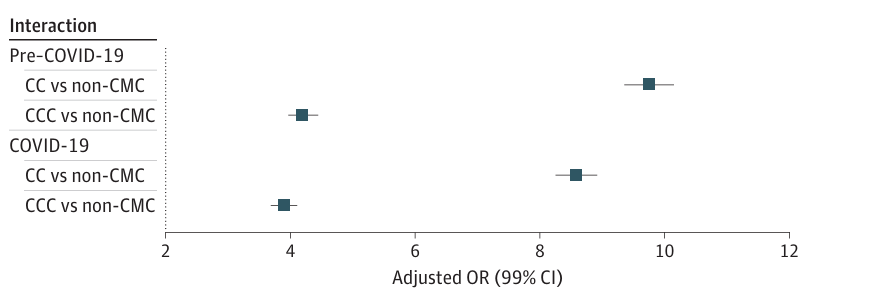
Introduction
Chronic medical conditions (CMCs) in youths present unique challenges, particularly concerning substance use (SU). Defined as conditions persisting for over a year, CMCs require continuous medical attention and can limit daily activities. Youths with CMCs are often more prone to substance use, including alcohol, cannabis, and nicotine, than their healthier peers. SU among this vulnerable group is complex and exacerbated by the impact of the COVID-19 pandemic on these trends. In order to form a better understanding of the implications for healthcare professionals and the broader community, we unpack some insights from recent research.
Understanding the Link Between Chronic Conditions and Substance Use
Adolescence is a period marked by significant biological and social changes. The desire for autonomy and peer acceptance can drive substance experimentation. Youth with CMCs are more susceptible to problematic substance use, leading to mental health issues like anxiety and depression. Statistics reveal that youth with CMCs have a higher likelihood of receiving a substance use disorder diagnosis by young adulthood. This trend highlights the necessity for targeted mental healthcare strategies.
Impact of COVID-19 on Youth Substance Use
The COVID-19 pandemic has intensified concerns about youth mental health. Social isolation and school closures contributed to increased mental health symptoms, influencing substance use patterns. A study found that during the pandemic, youth with CMCs had significantly higher odds of emergency department visits for substance use. This highlights the need for enhanced support systems to address these challenges. Racial and ethnic minority youth with CMCs also faced higher risks, emphasising the importance of culturally sensitive interventions.

Integrating Substance Use Screening in Healthcare Settings
Healthcare systems must adapt to provide comprehensive mental healthcare for youth with CMCs. Universal substance use screening in emergency departments and other healthcare settings is crucial. Many youths do not access primary care, missing opportunities for preventive counselling. Emergency department encounters can serve as critical touchpoints for intervention. Clinicians must be trained to recognise and address substance use risks, ensuring early intervention and cohesive care.
Addressing Disparities in Mental Healthcare
Racial and ethnic disparities in mental healthcare access persist. Minority youth with CMCs often experience systemic barriers to substance use treatment. Healthcare systems must prioritise equitable access to mental health services. Implementing universal screening and referral protocols can help bridge these gaps. Understanding the social determinants of health, such as parental unemployment or loss of insurance, is essential for tailored interventions.
Conclusion
Mental healthcare for youth with chronic conditions requires a multifaceted approach. Addressing substance use through universal screening, culturally sensitive interventions, and equitable access to care is vital. The COVID-19 pandemic has highlighted existing gaps and the urgent need for systemic improvements. Future efforts should focus on integrating mental healthcare into all healthcare settings, ensuring that youth with CMCs receive the support they need for healthier futures.
